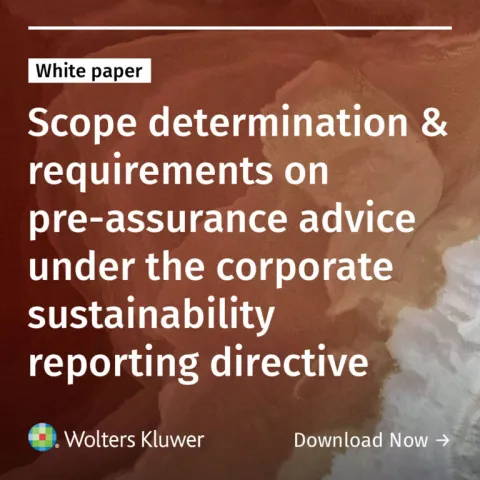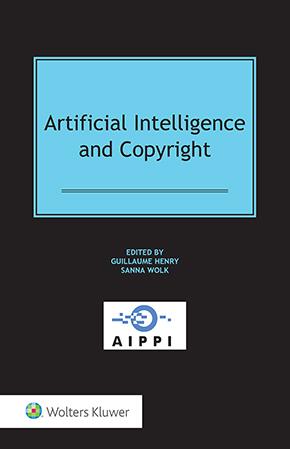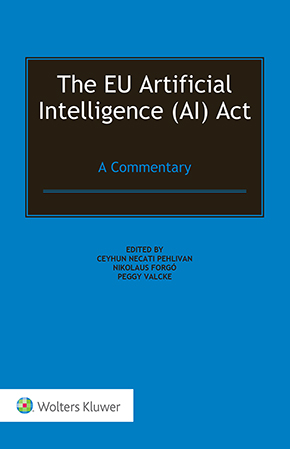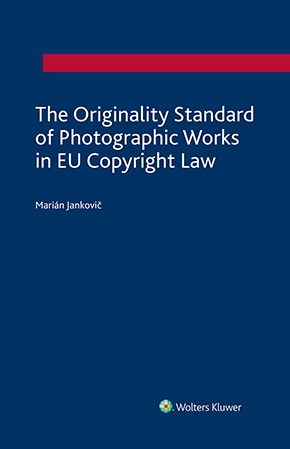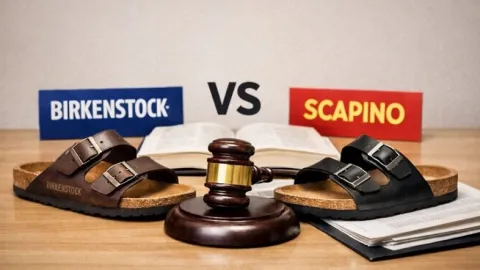EU copyright law roundup – second and third trimester of 2025
October 8, 2025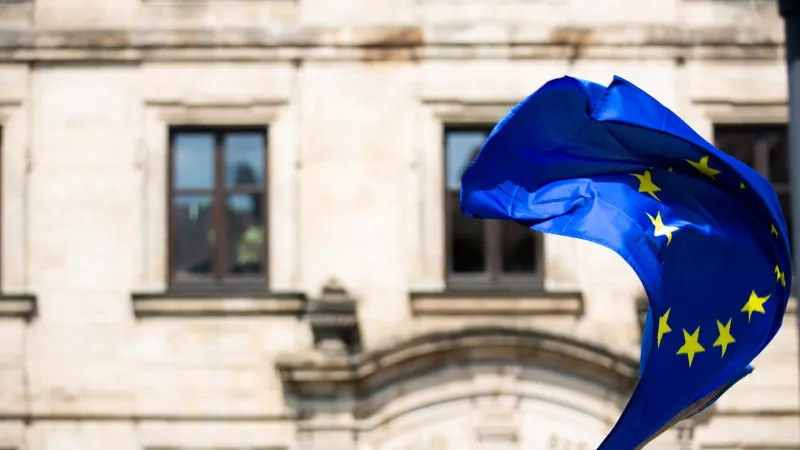
Following our platform update and the summer break, one may think we stopped our roundup series. Rest assured – we are here! This edition combines the second and third trimesters, so it will be longer than usual. We will report on what has happened in EU copyright law between April and September 2025. This roundup includes plenty of Advocate General (AG) Opinions, information on ongoing AI litigation, as well as a few developments that took place already earlier in the year but which have slipped our attention. Warning: a lot of what follows is inevitably on AI and copyright.
As a reminder, in this series, we update you on judgements at the CJEU, AG Opinions (if any), as well as important policy developments.
You can read the previous roundups here.
CJEU judgments and AG Opinions
SACD and Others, AG Opinion, C-182/24
This case turns on a rather procedural aspect deriving from national law. On the substantive side, the copyright issue is whether national or EU law governs the notion of joint ownership. The AG suggests ownership is a matter for the individual Member States and not EU law. Read Eleonora Rosati’s take on this here.
Mio/konektra, AG Opinion, C-580/23 and C-795/23
On 8 May 2025, AG Szpunar delivered his opinion in this case, unpacking the protectability requirements for applied art. Read Estelle Derclaye’s comment here and the Opinion of the European Copyright Society prior to the AG Opinion here.
Pelham II, AG Opinion, C-590/23
May brought the long-awaited AG Opinion in Pelham II on the notion of pastiche. Read Sabine Jacques’ analysis of the case here and here, as well as Elena Izyumenko’s post here.
Meta Platforms Ireland, AG Opinion, C-797/23
AG Szpunar recommends that Article 15 of the CDSM Directive, read together with Articles 16 and 52 of the Charter of Fundamental Rights, be interpreted as allowing Member States to:
- grant press publishers the right to fair remuneration for authorising information society service providers to use their publications;
- impose on such providers obligations regarding negotiations with publishers, information disclosure, and good faith; and
- empower a public authority (in this case, the Italian AGCOM) to regulate, monitor, and sanction compliance, including by proposing criteria for determining the remuneration due.
However, this is subject to the conditions that national provisions do not deprive publishers of the right to refuse or grant authorisation free of charge; do not impose payments unrelated to the actual or intended use of publications; and do not unduly restrict the parties’ contractual freedom.
In essence, the AG recommends that Member States may adopt support measures to ensure the effectiveness of the rights of press publishers provided that such measures do not undermine freedom of contract. In doing so, Member States have a certain margin of discretion to Member States.
DADA Music and UPFR, CJEU, C-37/24
In this judgment that may have slipped your attention, the CJEU ruled that EU law does not require Member States to guarantee minimum flat-rate remuneration to phonogram producers for the broadcasting of commercial phonograms, provided that the system in place ensures equitable, appropriate and proportionate remuneration.
Policy
OECD, Intellectual property issues in artificial intelligence trained on scraped data
Back in February 2025, even the OECD engaged with the topic of AI. The report aims to facilitate a greater understanding of data scraping — a primary method for obtaining AI training data needed to develop many large language models.
European Commission, Study on contractual practices affecting the transfer of copyright and related rights
In March, the European Commission published a study on contractual practices in various creative sectors (audiovisual, music, visual arts, video games and literary works), looking at the transfer of copyright and related rights from authors/performers and audiovisual producers to contractual counterparts exploiting these rights.
European Commission, Guidelines on the scope of obligations for providers of general-purpose AI models under the AI Act
These guidelines focus on the scope of the obligations for providers of general-purpose AI models laid down in the AI Act, which entered into application on 2 August 2025.
European Parliament, AI and copyright: the training of general purpose AI
The Parliament published a brief note in April outlining features of the training process of general-purpose AI.
European Commission, Call for evidence in view of the assessment of the Recommendation on combatting online piracy of sports and other live events
In the spring, the European Commission collected evidence on the effects of the measures proposed in Recommendation on combating online piracy of sports and other live events issued in May 2023. The call closed in June 2025.
US Copyright Office, Copyright and artificial intelligence: part 3 – generative AI training
In its series of reports following its public consultation on AI and copyright, in May 2025 the US Copyright Office (USCO) issued its third part, looking at generative AI training. The report unpacks the technical background, the infringement debate, the applicability of fair use and licensing for training. Importantly, this report was released as a pre-publication version. Shortly after the report’s release, then Director of the USCO Shira Perlmutter was fired by the Trump Administration, only to be reinstated temporarily in September by U.S. Court of Appeals for the District of Columbia Circuit, pending a decision on her appeal against the administration decision of terminating her (see here). To be clear, we have no knowledge whether and to what extent this particular report is related to Perlmutter termination; this turmoil may however explain why the report still appears on the USCO website as a pre-publication version.
EUIPO, The development of generative artificial intelligence from a copyright perspective
A research team at the University of Turin Law School and the Nexa Center for Internet & Society of the Polytechnic of Turing are behind the EUIPO-commissioned study on generative AI. The report looks at the technical, legal and economic implications of generative AI, as well as issues surrounding the input and output. It includes relevant stakeholder interviews backing up its findings.
European Commission, Report on Intellectual Property Rights in Third Countries, Counterfeit & Piracy Watch List
Once every two years the Commission reports on the state of protection and enforcement of IP in third countries. In terms of degree of concern, the report identifies China as a top priority followed by India and Turkey.
UK government, Digital and Technologies Sector Plan and Creative Industries Sector Plan
In these plans, the UK government stresses the need to deliver an AI/copyright framework that supports AI development in the UK, which also ensures a copyright regime supporting human creativity and values remains in place.
UK, Data (Use and Access) Act 2025
In July, the UK passed the hotly debated the Data (Use and Access) Act. It includes certain copyright provisions (sections 135 to 137). According to these, by the end of March 2026 the government must produce an economic impact assessment and report on the copyright policy options regarding AI training which were set out in the government's copyright and AI consultation, including issues such as technical measures, transparency, licensing, enforcement, and AI developed outside the UK.
European Commission, The General-Purpose AI Code of Practice and accompanying Q&A
A lot has been written on this code, including on our blog (see here and here). Finally, in July the Commission published the final version of the Code, which you can access here, together with the updated list of signatories. The specific Copyright chapter is available here. Importantly, this chapter focuses only on the obligation laid down in Article 53(1), point (c), of the AI Act pursuant to which general-purpose AI model providers must put in place a policy to comply with Union law on copyright and related rights, and in particular to identify and comply with, including through state-of-the-art technologies, a reservation of rights (the so-called “opt-out”) expressed by rightsholders pursuant to Article 4(3) of the CDSM Directive. Together with the Code, the Commission also published a set of general questions and answers on the code of practice for General-Purpose AI.
European Parliament, Generative AI and Copyright - Training, Creation, Regulation
Yet another study on generative AI and copyright was carried out, but this time for the Parliament. Nicola Lucchi’s report advocates for clear rules on input/output distinctions, harmonised opt-out mechanisms, transparency obligations, and equitable licensing models.
European Commission, Explanatory Notice and Template for the Public Summary of Training Content for general-purpose AI models
Following on the code of practice from July, the Commission released an explanatory notice and template for the summary of training content for general-purpose AI models. This template is required to be filled in by general-purpose AI models providers prior to placing on the Union market their models in order to comply with their obligation under Article 53 (1)(d) of the AI Act. This provision, we remind readers, also applies to copyright-protected content used in training this type of models, including inter alia a specific section (3.1) concerning measures implemented by the provider to identify and comply with the reservation of rights from the text and data mining (TDM) exception expressed pursuant to Article 4(3) of the CDSM Directive, as outlined in the copyright policy put in place by the provider in accordance with Article 53(1)(c) AI Act.
Italy, Law on artificial intelligence
In September, Italy became the first EU Member State to pass a law targeting AI. The law will be effective from 10 October 2025. This is the first such EU legislation to explicitly regulate authorship of works created with the aid of AI. These are protected provided they are the product of sufficient human intellectual work. The law focuses on various areas that go beyond copyright law. Stay tuned for an upcoming post elaborating on the new law.
Coming soon and latest referrals
And if this was not enough, there is plenty to get excited about for the coming months – both from the CJEU and national courts.
In July, the Munich Regional Court heard oral proceedings in a legal action brought by the German collecting society for authors rights (GEMA) against Open AI. In the UK, in June the hearing in the highly publicized Getty Images v Stability AI case commenced.
The CJEU will analyse copyright protectability standards in mio/konkektra (C-580/23 and C-795/23), Institutul G. Călinescu (C-649/23), Gândul Media Network (C-598/24).
Communication to the public will continue to be a topic for the court. The CJEU is still to have its say in VHC 2 Seniorenresidenz (C-127/24) with respect to retirement homes, Anne Frank Fonds (C-788/24) on geo-blocking and a recent German referral hyperlinking to an infringing copy.
In addition, following the respective AG Opinions, the following cases are still pending a final judgment from the Court: Pelham II (C-590/23) on pastiche, SACD and Others (C-182/24) on joint authorship/infringement, Thuiskopie/HP (C-496/24; AG Opinion here) on streaming copies and levies and Meta (C-797/23) on press publishers.
The topic of private copy and levies will be further unpacked in bluechip (C-822/24) and VG Wort (C-840/24), while blocking injunctions are the issue in Satel Film (C-832/24, C-833/24 and C-834/24).
Several cases are also pending on the interpretation of the CDSM Directive: Streamz and Others (C-663/24) on fair remuneration of authors and performers on online streaming platforms, Agecop (C-441/25) on the notion of fair compensation, Austro-Mechana (C-579/24) on the scope of Article 17 and Like Company v Google (C-250/25) on text and data mining (on which, see here).
Stay tuned!
You may also like



